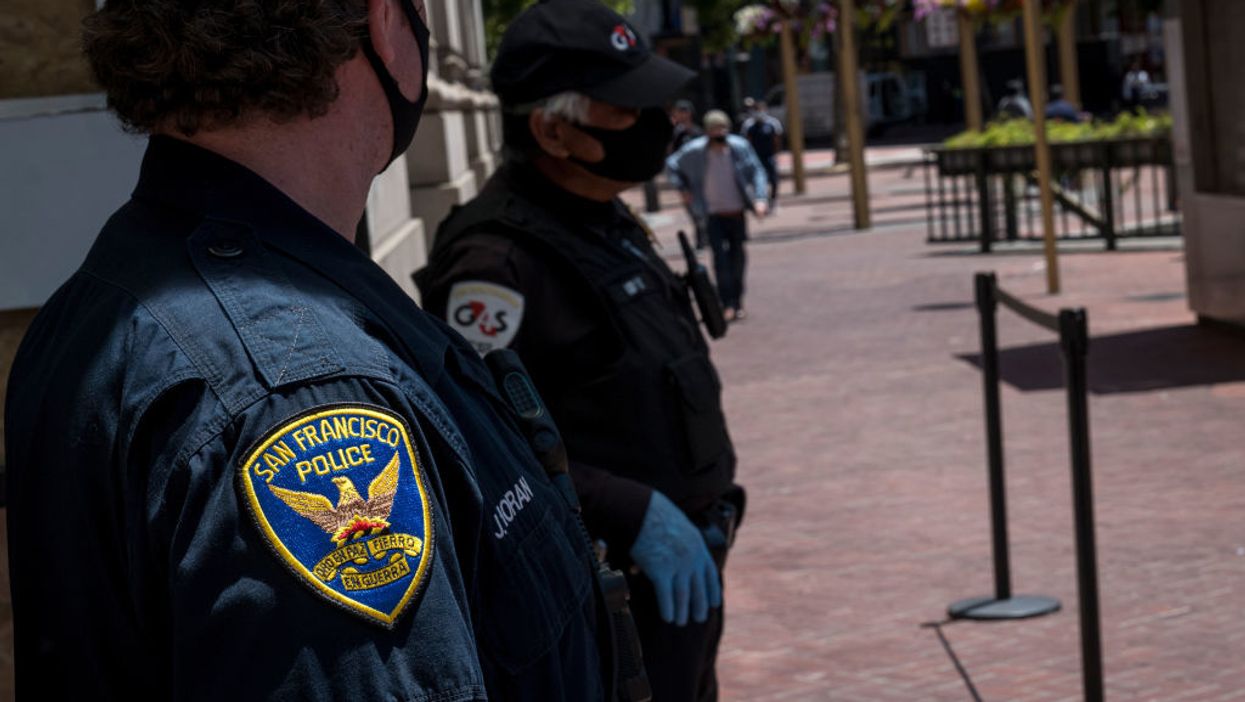
David Paul Morris/Bloomberg via Getty Images

An effort to stop perpetuating racial stereotypes
The San Francisco Police Department will no longer release the mug shots of arrested individuals — unless they pose a threat to public safety — over concerns of perpetuating racial bias, the department's chief announced Wednesday.
Chief Bill Scott said that publishing the names and faces of arrested individuals on social media or in the news "creates an illusory correlation for viewers that fosters racial bias and vastly overstates the propensity of Black and brown men to engage in criminal behavior," according to the San Francisco Chronicle.
Scott also reportedly said in an interview that he arrived at his decision in response to concerns he had heard from members of the community, police officers, the public defender's office, and prosecutors. The police chief added that his own personal experiences in seeing mug shots published online also informed his decision.
"Now, these are photos that were supplied by law enforcement, but that illustrates the point," Scott said. "When you see that enough, some people can start associating groups of people with criminal activity and crime, which leads to another whole host of problems — stereotyping."
According to the Associated Press, legal experts who also spoke at the news conference noted that mug shots are often released regardless of whether or not the individual is prosecuted for the crime, and suggested that making the booking photos public often undermines the presumption of innocence.
Scott said he believes his department is the first in the country to issue such a directive, but said he hoped other departments would consider following suit.
"This is just one small step but we hope this will be something that others might consider doing as well," Scott said.
Jack Glaser, a professor at the University of California-Berkeley whose research Scott consulted before issuing the directive, said data shows black people are more likely to have their cases dismissed.
"That may be just part and parcel of the same issue that police will stop and search Blacks at a lower threshold of suspicion in the first place and so, their arrests are more likely to be unsubstantiated," he said, according to the AP.
The Chronicle reported that under the new order, the department's media relations unit will handle the release of any booking photos or information about arrested individuals.